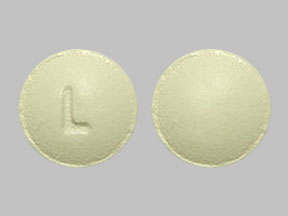
Aspirin Coupons & Savings Card – Discount Prices from $7.04
Generic for: Aspir-low, Aspirin childrens, Aspirin low strength
My prescription
Edit
81MG, Aspirin (90 Tablet Delayed Releases)
Select pharmacy

Albertsons
$7.04
COUPON PRICE
Walgreens
$7.04
COUPON PRICEAspirin savings card
Show this card to your pharmacist
Albertsons
$7.04
BIN
ID
PCN
GRP
011867
LHA65BC7D2
HT
LABH001
Powered by
Related NSAIDs prescriptions
More prescriptions for rheumatoid arthritis
Related NSAIDs prescriptions
More prescriptions for rheumatoid arthritis
Price history for Aspirin Low Dose (brand) & Aspirin (generic)
90 Tablet Delayed Releases, 81MG
Average retail price for Aspirin Low Dose
Average retail price for Aspirin
Average SaveHealth price for Aspirin
Our price history data is based on aggregated prescription data collected from participating pharmacies in America. Our prescription data updates daily to reflect the latest price changes. If you notice a missing data point, it means there wasn't sufficient data available to generate a monetary value for that date.
We analyzed Aspirin prices for (81MG, 90 Tablet Delayed Releases) over the last 12 months. The average retail price was $21.09, while the average price using the SaveHealth discount card was $3.63. That's a savings of approximately 82.79% when using our Aspirin coupon.
Compared to the generic version, Aspirin Low Dose had an average price of $13.04 over the same time period. With the SaveHealth savings card, Aspirin is 72.16% cheaper on average than Aspirin Low Dose.
*Retail prices are based on pharmacy claims data, and may not be accurate when we don't have enough claims.
Aspirin dosage forms
Dosage Quantity Price from Per unit 81MG 90 Tablet Delayed Releases $7.84 $0.09 81MG 1 Tablet Delayed Release $7.50 $7.50 81MG 15 Tablet Delayed Releases $7.56 $0.50 81MG 20 Tablet Delayed Releases $7.58 $0.38 81MG 30 Tablet Delayed Releases $7.61 $0.25 81MG 33 Tablet Delayed Releases $7.63 $0.23 81MG 35 Tablet Delayed Releases $7.63 $0.22 81MG 36 Tablet Delayed Releases $7.64 $0.21 81MG 45 Tablet Delayed Releases $7.67 $0.17 81MG 54 Tablet Delayed Releases $7.71 $0.14
| Dosage | Quantity | Price from | Per unit |
|---|---|---|---|
| 81MG | 90 Tablet Delayed Releases | $7.84 | $0.09 |
| 81MG | 1 Tablet Delayed Release | $7.50 | $7.50 |
| 81MG | 15 Tablet Delayed Releases | $7.56 | $0.50 |
| 81MG | 20 Tablet Delayed Releases | $7.58 | $0.38 |
| 81MG | 30 Tablet Delayed Releases | $7.61 | $0.25 |
| 81MG | 33 Tablet Delayed Releases | $7.63 | $0.23 |
| 81MG | 35 Tablet Delayed Releases | $7.63 | $0.22 |
| 81MG | 36 Tablet Delayed Releases | $7.64 | $0.21 |
| 81MG | 45 Tablet Delayed Releases | $7.67 | $0.17 |
| 81MG | 54 Tablet Delayed Releases | $7.71 | $0.14 |
| 81MG | 60 Tablet Delayed Releases | $7.73 | $0.13 |
| 81MG | 68 Tablet Delayed Releases | $7.76 | $0.11 |
| 81MG | 100 Tablet Delayed Releases | $7.88 | $0.08 |
| 81MG | 120 Tablet Delayed Releases | $7.96 | $0.07 |
| 81MG | 150 Tablet Delayed Releases | $8.07 | $0.05 |
| 81MG | 180 Tablet Delayed Releases | $8.19 | $0.04 |
| 81MG | 250 Tablet Delayed Releases | $8.46 | $0.03 |
| 81MG | 300 Tablet Delayed Releases | $8.65 | $0.03 |
| 81MG | 500 Tablet Delayed Releases | $9.41 | $0.02 |
| 81MG | 800 Tablet Delayed Releases | $10.56 | $0.01 |
| 81MG | 1000 Tablet Delayed Releases | $11.33 | $0.01 |
| 325MG | 14 Tablet Delayed Releases | $7.56 | $0.54 |
| 325MG | 16 Tablet Delayed Releases | $7.57 | $0.47 |
| 325MG | 18 Tablet Delayed Releases | $7.58 | $0.42 |
| 325MG | 20 Tablet Delayed Releases | $7.58 | $0.38 |
| 325MG | 24 Tablet Delayed Releases | $7.60 | $0.32 |
| 325MG | 30 Tablet Delayed Releases | $7.63 | $0.25 |
| 325MG | 40 Tablet Delayed Releases | $7.67 | $0.19 |
| 325MG | 45 Tablet Delayed Releases | $7.69 | $0.17 |
| 325MG | 50 Tablet Delayed Releases | $7.71 | $0.15 |
| 325MG | 60 Tablet Delayed Releases | $7.75 | $0.13 |
| 325MG | 80 Tablet Delayed Releases | $7.84 | $0.10 |
| 325MG | 90 Tablet Delayed Releases | $7.88 | $0.09 |
| 325MG | 100 Tablet Delayed Releases | $7.92 | $0.08 |
| 325MG | 120 Tablet Delayed Releases | $8.01 | $0.07 |
| 325MG | 125 Tablet Delayed Releases | $8.03 | $0.06 |
| 325MG | 200 Tablet Delayed Releases | $8.34 | $0.04 |
| 325MG | 250 Tablet Delayed Releases | $8.55 | $0.03 |
| 325MG | 300 Tablet Delayed Releases | $8.76 | $0.03 |
| 325MG | 500 Tablet Delayed Releases | $9.61 | $0.02 |
| 325MG | 1000 Tablet Delayed Releases | $11.71 | $0.01 |
| 325MG | 40000 Tablet Delayed Releases | $175.98 | $0.00 |
